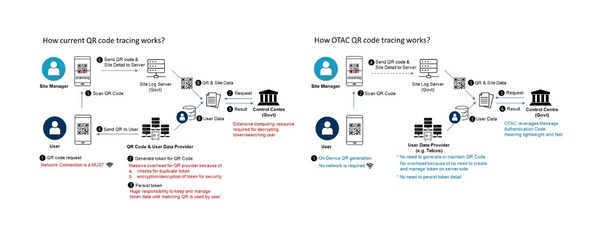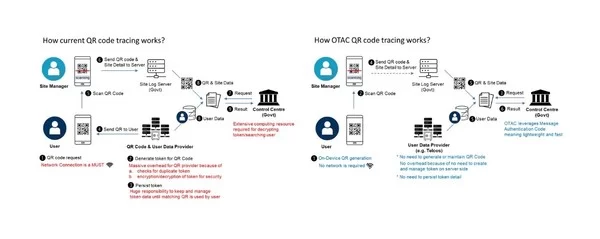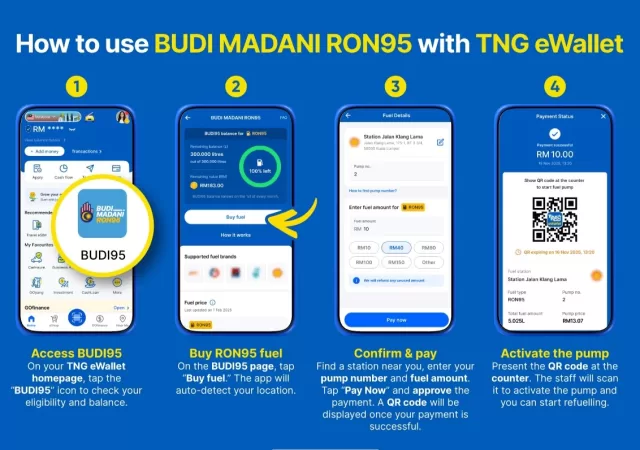Nationwide deployed QR code tracing system would be effective in case of second surge of COVID-19
SEOUL, South Korea, June 25, 2020 — A cybersecurity startup and a member company of the Born2Global Centre, swlDch suggests dynamic, unidirectional QR code technology that can encourage wider user adoption as well as protect user privacy.
Strict measures are eased as the number of COVID-19 cases is falling. However, concerns remain that further surges of cases may be on the horizon. Even countries with effective strategies have seen second wave spikes and clusters of cases. So when the World Health Organization says the virus may be here to stay, nations need to understand that they will experience new cases. The challenge is how to predict, track and handle them. It is crucial to keep test and trace momentum to manage the epidemic in a timely manner. Under this circumstance, many governments try to adopt contact-tracing app on a national scale. In the UK, a new NHS contact-tracing app will be in place. The app allows smartphones to track every other device they have come into contact with, exchanging anonymous IDs using Bluetooth signal. Once the case is confirmed, it then informs other users in close contact through the app.
South Korea is taking a slightly different approach. They focus on tracking visitors at high-risk facilities by adopting a QR Code based electronic registration system. This became compulsory because South Korean authorities have experienced considerable difficulties in their epidemiological investigation of the night club outbreak in May. Much of the information on handwritten visitor logs was found to be false or incomplete. From 10 June, visitors to those indoor venues such as nightclubs, Karaoke clubs, and gyms will be required to use an app that generates a one-time personalized QR code that can be scanned at the door. Utilizing QR code technology is basically a tokenization that helps to collect visitors’ information and recall the information in case of an emergency.
However, this tokenization technology is likely to encounter a problem of limited coverage that is disrupting the national roll-out. Since it requires an active network connection for generating tokens, visitors who use entertainment venues located in the basement often experience serious latency during the code generation process. In addition, the more device connected to a network, the larger its attack surface grows, making easier for hackers to infiltrate the network. This can bring serious consequences like a breach of personal data. Some may question why individuals should bear the cost of mobile data for a service they are reluctant to use. On the other hand, the current system also causes technical challenges to QR code providers. They are required to be equipped with a great level of server capacity and computing resources in order to handle massive overhead from storing to encrypting/decrypting the tokens and information.
swIDch‘s OTAC (One Time Authentication Code) technology can be an alternative solution, tackling the network connection issue of the QR code tracking system. This patented algorithm of OTAC enables to generate dynamic QR code on visitors’ smartphone even in off-the-network environment. Since OTAC does not require an active network connection, it can secure visitors information from hacking. In addition, it removes friction from user journeys by reducing heavy network traffic for generating tokens and server loads for persisting token details. In other words, system operators can save significant resources for processing tokens. As a result, the government can operate the system with larger coverage with less technical challenges.
The nationwide rollout is the key to efficiently operate the tracking system. Even though it is compulsory by the government, frictionless use of the system should be supported to encourage citizen’s participation. swIDch believes that OTAC can increase adoption and use of the QR code tracking system by providing uninterrupted, safe, and easy use of the system. The company actively proposes the solution to other states typically in developing countries where a network connection is unstable. Inspired by UN’s Sustainable Development Goals (SDGs), the company is willing to distribute its technology for free to any other country upon its requirement to tackle the global COVID-19 crisis together.
For more detailed information on swIDch, visit https://swidch.com/.
About swIDch
swIDch Ltd. (www.swidch.com) is a cybersecurity start-up based in London with R&D center in South Korea. The company helps businesses to identify and authenticate its users through our patented algorithm, one-time authentication code that generates in a networkless environment, to tackle problems of identity theft and CNP frauds. It is a security feature for uninterrupted use of devices by combining user identification and authentication steps into one only with the dynamic authentication code. Since its foundation in 2018, the company has chosen for the leading accelerator programmes in Europe and Asia – LORCA, Global Entrepreneur Programme, and Accenture FinTech Innovation Lab. Furthermore, swIDch gained global recognition for its innovative authentication technology, selected for XTC (Extreme Tech Challenge) finalist, winner of the hottest Cybertech Company from Europas 2020, and the annual list of the world’s most innovative Cybertech Company ‘Cybertech100’.
About Born2Global Centre
Born2Global Centre (www.born2global.com) is a full-cycle service platform for global expansion. Since inception in 2013, Born2Global has been setting the standard for successful startup ecosystem as the main Korean government agency under the Ministry of Science and ICT. Born2Global has expanded and transformed startups to be engaged, equipped and be connected with the global market.
Media contact
swIDch: [email protected]
Born2Global Centre: [email protected]







